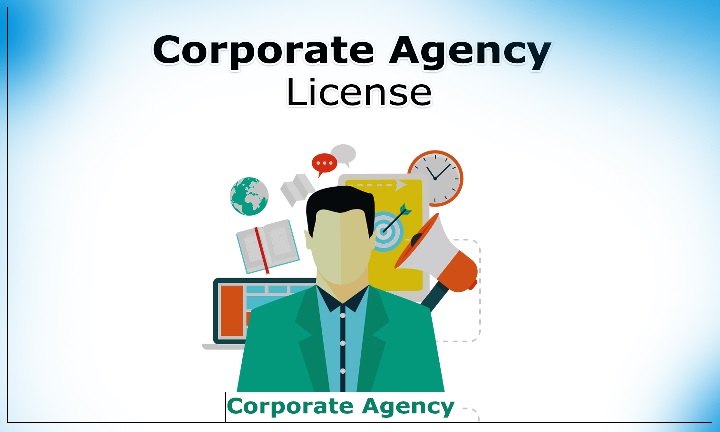In India, the insurance industry has been growing at a rapid pace, driven by increasing awareness about financial protection and the need for security. With a large and diverse population, a vast array of insurance products, and evolving customer expectations, the Indian insurance market offers a wealth of opportunities for businesses and entrepreneurs. For those interested in tapping into this growing market, obtaining a Corporate Agency Licence can be a significant step forward.
A Corporate Agency Licence enables businesses to distribute insurance products from one or more insurance companies. This is distinct from the individual agent licence and allows companies to operate on a much larger scale. Whether you are a financial services company, a bank, or a non-financial business looking to diversify, obtaining this licence can open doors to new revenue streams and growth potential.
In this guest post, we will delve into what a Corporate Agency Licence is, the process to obtain one, the benefits of holding such a licence, and the regulatory requirements involved in the Indian context.
What is a Corporate Agency Licence?
A Corporate Agency Licence is granted by the Insurance Regulatory and Development Authority of India (IRDAI) to entities that wish to act as intermediaries between insurance companies and potential customers. Unlike individual agents, who are typically individuals selling insurance policies, a corporate agent is a company or business entity that has the authority to distribute insurance products.
These businesses act as an intermediary between the insurance company and the policyholders, providing a range of services, including:
- Selling insurance products
- Advising customers on insurance needs
- Providing customer support and after-sales services
- Helping clients with policy renewals and claims
A Corporate Agency Licence allows an entity to represent multiple insurance companies (life and general insurers) and offer a variety of insurance products to customers.
Who Can Apply for a Corporate Agency Licence?
Under the IRDAI regulations, the following entities are eligible to apply for a Corporate Agency Licence:
- Banks: Financial institutions such as commercial banks and co-operative banks can apply for a corporate agency licence. Many banks in India use this opportunity to offer bundled services, combining banking with insurance products to increase customer engagement.
- Non-Banking Financial Companies (NBFCs): NBFCs that offer financial services can also obtain a corporate agency licence and expand their offerings to include insurance products.
- Corporate Entities (Non-Financial Companies): Non-financial businesses, such as retail chains, automobile companies, and other large enterprises, can partner with insurers to offer insurance as part of their value-added services.
- Post Offices: Government-run institutions like India Post can also obtain corporate agency licences to offer insurance products to a wider base of customers.
Essentially, any company that wants to sell or distribute insurance products and offer related services can apply for a corporate agency licence.
Types of Corporate Agency Licences
Corporate agency licences are classified into two main types:
- Single Corporate Agency Licence: This type of licence allows a corporate agent to sell products from only one insurance company. It is suitable for companies looking to have exclusive ties with a single insurer.
- Multiple Corporate Agency Licence: With this licence, a corporate agent can sell products from multiple insurance companies (both life and general insurers), offering customers a variety of options. This is the preferred option for many companies, as it increases the range of products they can offer to clients.
Process of Obtaining a Corporate Agency Licence
Getting a Corporate Agency Licence in India is a rigorous process that requires adherence to specific regulatory guidelines laid out by the IRDAI. Below are the general steps involved:
-
Eligibility Criteria
Before applying, ensure your company meets the IRDAI’s eligibility criteria:
- The company must be a registered legal entity under Indian law (such as a private limited company or public limited company).
- The company must have a minimum net worth of ₹1 crore (for a single licence) and ₹2 crore (for a multiple licence).
- The company should have a sound financial background and the necessary infrastructure to support the distribution of insurance products.
-
Application Submission
Once the eligibility criteria are met, the next step is to submit an online application to the IRDAI. The application should include:
- Details of the company, such as business profile, infrastructure, and experience in the insurance or financial services sector.
- Compliance documents, including proof of the company’s net worth, audited financial statements, and details of any previous insurance distribution experience.
- A clear business plan outlining how the company plans to distribute insurance products and manage customer relationships.
-
Due Diligence by IRDAI
IRDAI conducts a thorough due diligence process to ensure that the applicant company has the required infrastructure, capabilities, and financial stability to distribute insurance products. This process may involve checks on the company’s:
- Management structure
- Employee qualifications
- Financial health and solvency
-
Training and Certification
Insurance agents within the company must undergo training programs approved by the IRDAI. The training typically covers product knowledge, regulatory compliance, customer service skills, and sales techniques. This ensures that the agency can effectively communicate the benefits of insurance products and help customers make informed decisions.
-
Granting of Licence
If the IRDAI is satisfied with the application and all supporting documentation, they will issue the Corporate Agency Licence. After this, the company can begin selling insurance products, either from a single insurer or multiple insurers, depending on the type of licence granted.
Benefits of Having a Corporate Agency Licence
- Diversified Revenue Streams A corporate agency licence allows a business to diversify its revenue sources by selling insurance policies alongside its core offerings. This can be a lucrative income stream, especially in the case of banks or financial services companies.
- Wider Customer Reach Insurance products are essential for a wide variety of customers, and as a corporate agent, a business can reach a broader customer base. This is particularly beneficial for non-financial businesses with established customer networks.
- Enhanced Brand Value By offering insurance products, companies can enhance their brand value, positioning themselves as holistic service providers. For example, banks that offer bundled products such as loans with insurance can increase customer loyalty and satisfaction.
- Access to Multiple Insurers With a multiple corporate agency licence, businesses can offer customers a wide variety of products from various insurers, increasing the chances of making a sale and better catering to customer needs.
- Partnership Opportunities Obtaining a corporate agency licence can also open doors for lucrative partnerships with leading insurance companies, enhancing credibility and building trust in the marketplace.
Regulatory Compliance and Responsibilities
Once a company obtains a corporate agency licence, it is required to comply with various regulatory guidelines set by IRDAI. These include:
- Regular audits and inspections
- Submission of quarterly reports on business activity
- Maintaining a minimum level of insurance sales and customer service standards
- Ensuring transparency in product offerings and commission structures
Non-compliance with these regulations can lead to penalties or the revocation of the licence, so maintaining adherence to IRDAI’s guidelines is crucial for continued business operations.
Conclusion
Obtaining a Corporate Agency Licence in India offers significant opportunities for companies looking to expand their business by offering insurance products. Whether you are a financial institution, a non-financial company, or an established business looking to diversify, having this licence can help you tap into the vast and growing Indian insurance market.
The process to obtain a licence may be detailed and require careful planning, but the benefits far outweigh the initial efforts. With the right approach, a Corporate Agency Licence can become a gateway to a new revenue stream, a broader customer base, and an enhanced business reputation in the competitive Indian marketplace.



